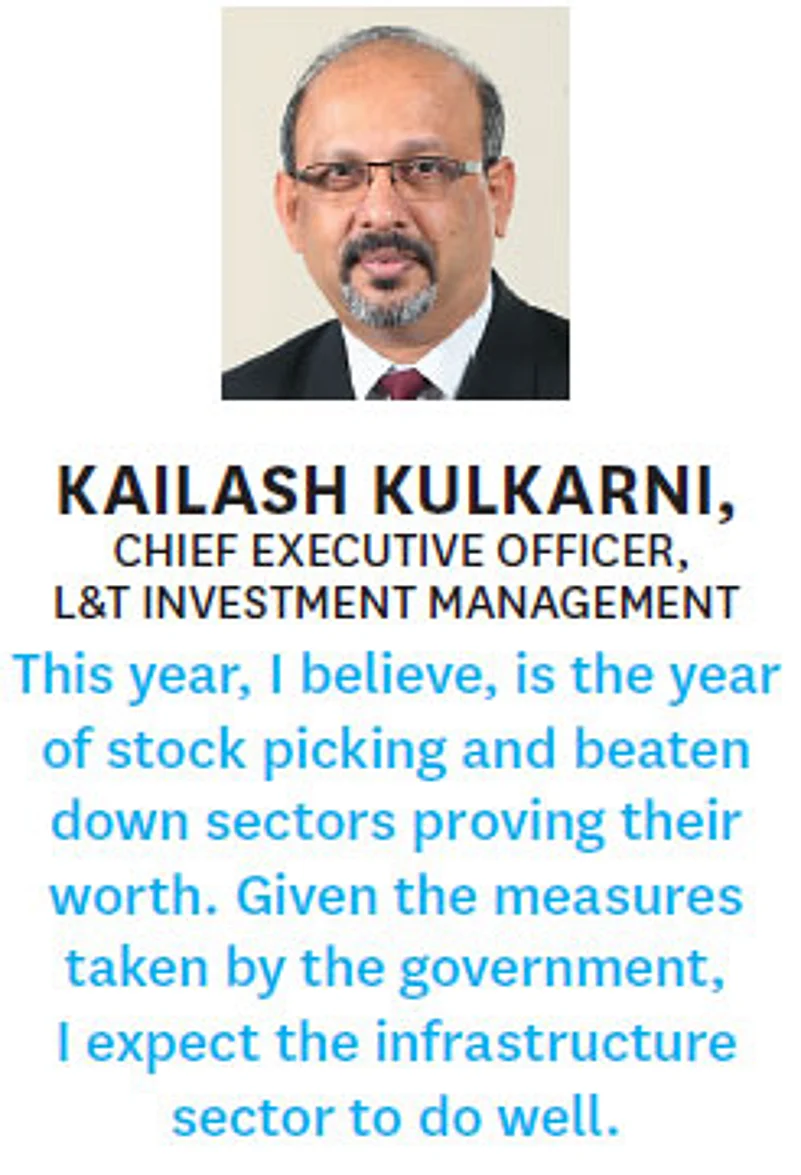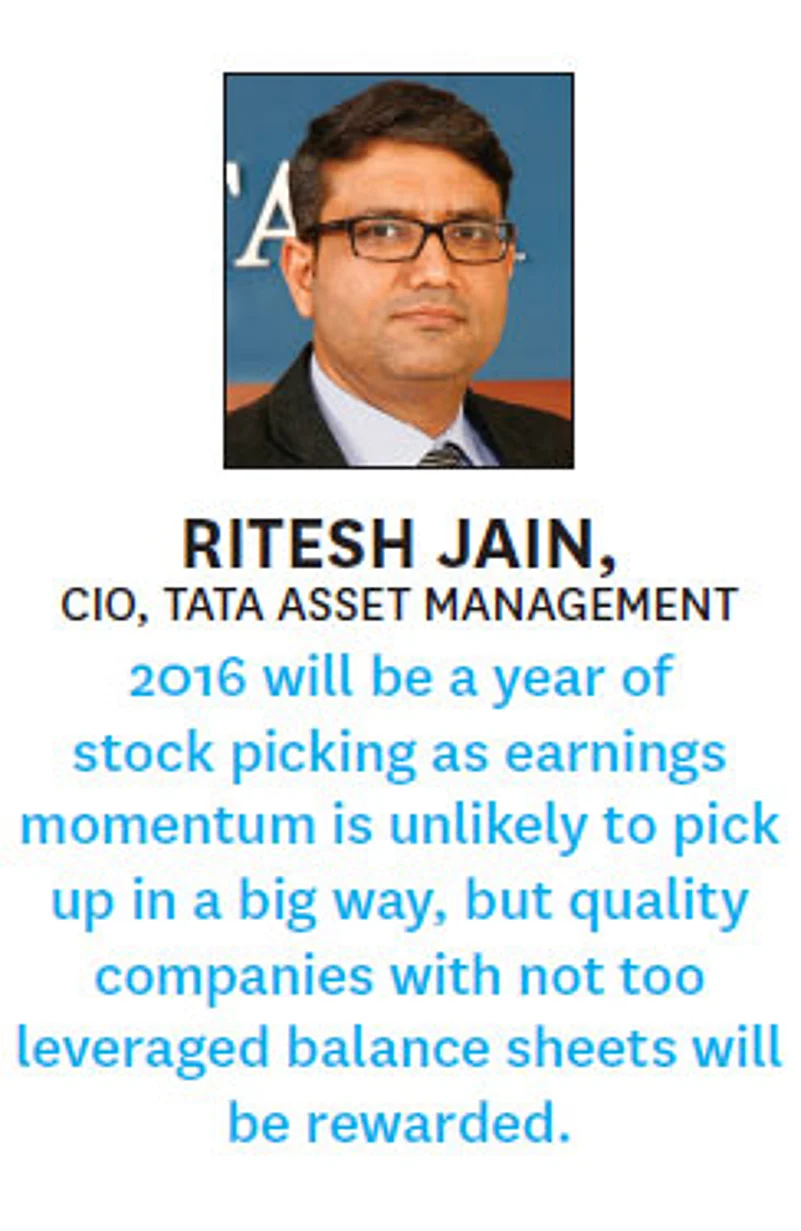The New Year started on a sombre note for Indian stock markets, with the bellwether BSE Sensex index slipping below 25,000 points level. Although a lot had to do with the impact of the crash in the Chinese markets owing to the devaluation of the Yuan, the further slide of crude oil price added to the decline in markets in the first week of 2016. For Indian markets, the next three months are crucial as not only will the Q3 earnings be out, there is also Budget 2016.

Says Kailash Kulkarni, CEO, L&T Investment Management: “While the global economic scenario is rather glum, I believe domestically we could hope for a paced recovery.” Although 2015 ended with a minor fall for the Sensex, the investment environment was positive with retail investors staying invested in equity mutual fund schemes, which recorded high inflows through the year. The primary markets also gained with notable IPOs coming into the markets, keeping the mood upbeat.
Strong future
“We were expecting earnings growth in fiscal 2016, but somehow it didn’t happen because of market volatility combined with global factors,” says S. Naganath, President and CIO, DSP BlackRock Investment Managers. However, he feels that large companies should exhibit 15 per cent earnings growth rate for fiscal 2017 and that number could even go higher somewhere between 15-20 per cent in fiscal year 2018. The economy seems to be on track with the twin deficits under control and inflation being under the manageable range. However, what has not kicked in yet is the government spends in infrastructure, which should give the right impetus for growth.
“One of the main positives that we expect this year is the picking up of the investment cycle which, if coupled with the capex and infrastructure investment, should give a major boost to our economy,” adds Kulkarni. But the major concern for Indian investors will be a mix of what happens to the currency and crude prices, as lower interest rates will kick in only when these are far more favourable according to the RBI. The lower rate cycle will not only increase consumer spends, it will also be a catalyst to revive spends by the corporate.

“2015 was the year of the trinity: dollar, crude and China. We believe that this trinity will continue to determine the outcome of 2016 again,” says Ritesh Jain, CIO, Tata Asset Management. He further addsthat China is a bigger impending obstacle to global recovery. “China is slowing down rapidly and taking a large bite out of global GDP growth,” adds Jain. Chinese slowdown will not directly impact Indian markets, but it will put pressure on a strong dollar and could curb growth and be a spoilsport. The other big play that can change market dynamics is the passage of the GST bill and its implementation.
Smart stock play
Investments this year will depend a lot on select stock picks, in companies with strong business models run by good managements and delivering consistent bottomline growth. “We think that sectors that would benefit from this growth momentum would be auto, consumer discretionary and banking,” feels Naganath. The other factor that could trigger spending is the implementation of the 7th Pay Commission, which should divert funds into the markets.
You should stay invested in equities directly or through mutual funds, and reap the benefits of riding the markets given the signs of economic revival, which will also push the markets up. “It is also important for an investor to understand that they cannot time the markets and thus should consider investing through SIPs to ride the market’s ups and downs and average the cost of investment,” suggests Kulkarni.
At the same time, investors need to closely watch the policy announcements made in the Budget, as they are likely to indicate the way the next 2-3 years will be for the markets. There are several bills that need to pass, including the Real Estate Bill and GST, which could have a lasting impact on the economy and stock markets. To make sure your money is on track, get into the habit of regular investments and review it at least once a year.
The systematic approach to equity investing has more or less become a norm, and something that needs to be followed irrespective of the way markets move. By following these simple and time-tested techniques, you can benefit from the long-term prospects of Indian markets and not be swayed by short-term noise and be misled. To stay on top of your investments, stick with equities and stay invested for a full cycle.













